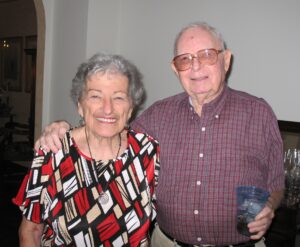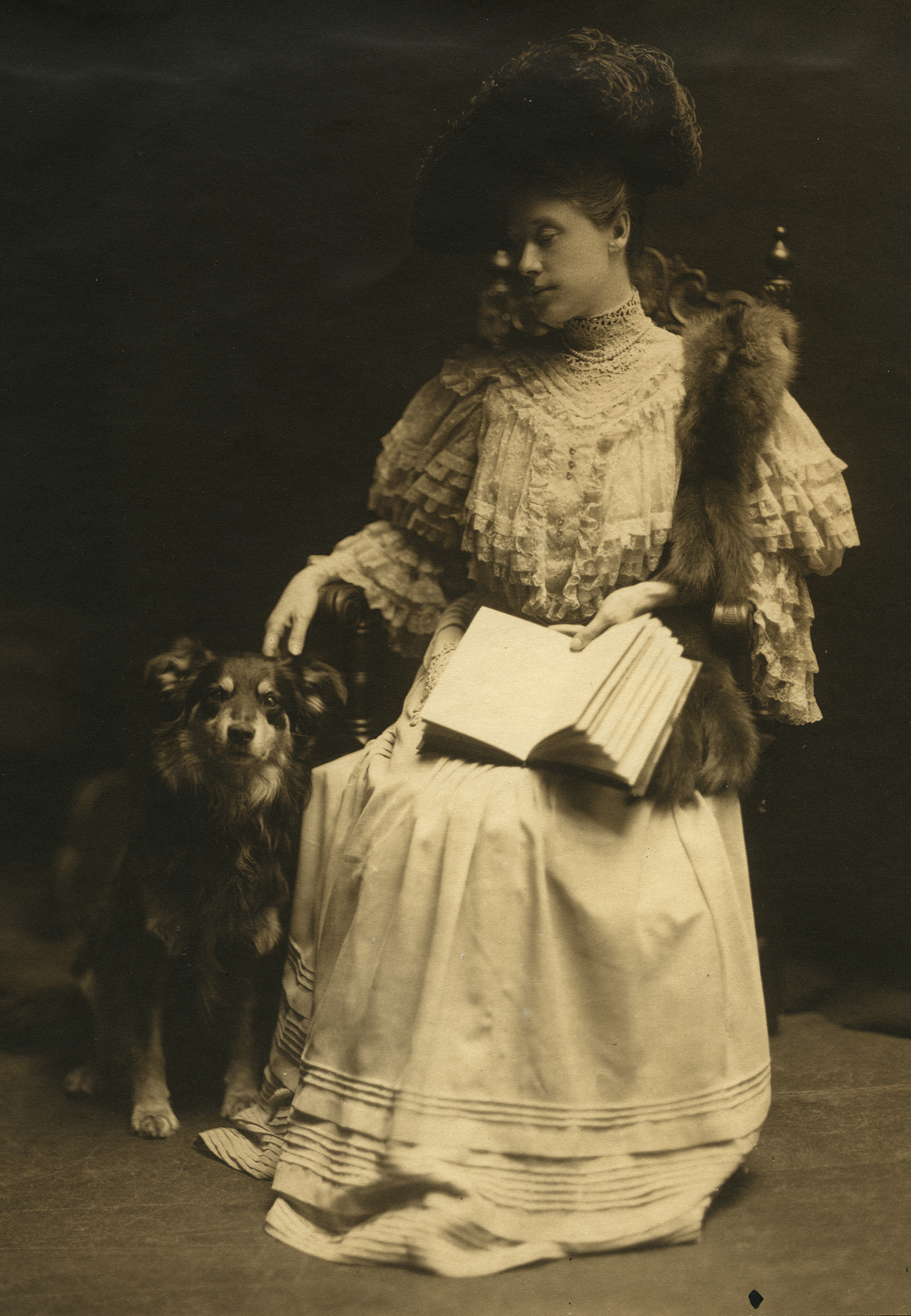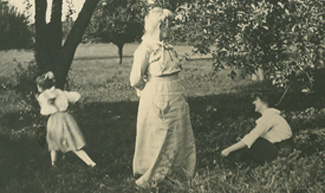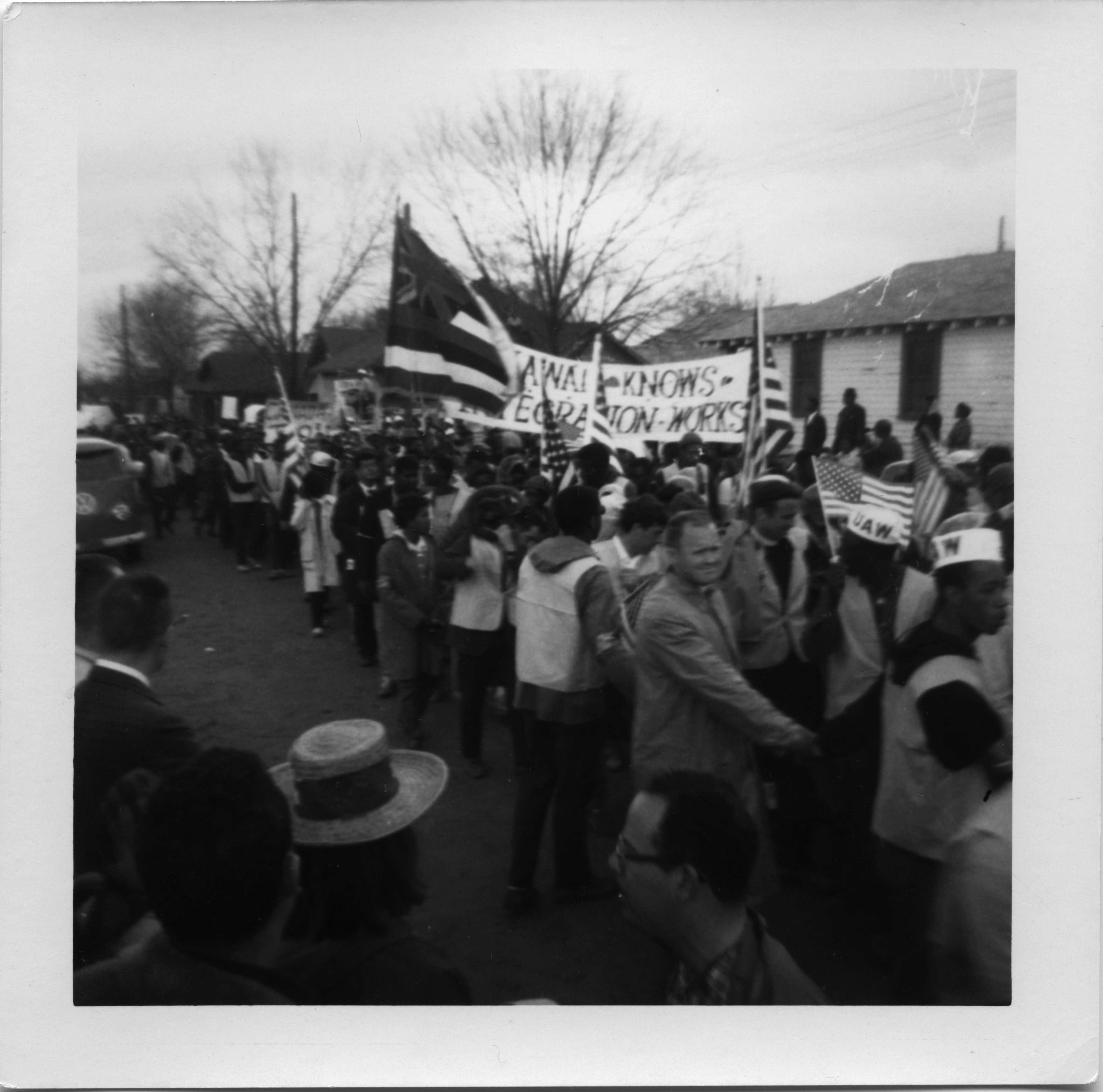Ozer Family Papers
ca. 1935-2015
10 boxes 13.5 linear feet
Call no.: MS 1002
 Ruth and Abe Ozer celebrating their 90th birthdays in 2010.
Ruth and Abe Ozer celebrating their 90th birthdays in 2010.
Born five days apart in June 1920 in Manhattan, Abraham Jay Ozer (born Abraham Ozersky) and Ruth Sydell Ozer (born Ruth Sydell Newman) married in 1947 after Abe returned from his army service in Australia, New Guinea, and the Philippines. Abe received the Purple Heart after being wounded by shrapnel from a kamikaze attack on his ship after the Battle of Leyte Gulf in 1944. Returning to New York, Abe and Ruth began their romance, after being friends earlier as part of a Workmen Circle teen group, and lived almost the entirety of the rest of their lives in the Amalgamated Housing Cooperative in the Bronx, the country’s oldest nonprofit housing cooperative. The Ozers were involved in the social, cultural, and financial community of the cooperative, originally founded by Amalgamated Clothing Workers Union members, and decidedly Jewish and progressive in its early decades. Working for RKO Pictures Inc. and as a substitute teacher, Ruth also volunteered at the local Amalgamated nursery school, which her daughters Alison and Stephanie attended as children. Self-employed in the insurance business, Abe served on several of the community’s boards and societies, and later volunteered as a dispatcher for ambulances in the Amalgamated, and as a tour guide at the Bronx Zoo. The two were also able to pursue their passion for travel, beginning their adventures in 1969 with a trip to the United Kingdom. Over the next thirty-five years they would take more than fifty international and national trips.
The Ozer Family Papers primarily document the lives of Abe and Ruth Ozer, including their high school and college years, their correspondence and other records from Abe’s military service in the 311th and then 168th Ordnance Depot Company, additional war correspondence between Ruth and other parties, and extensive documentation of the couple’s many years of travel, including selected slides, photographs, travel planning documents, and Ruth’s detailed travel journals for each trip from 1969 through 2005. Additional materials cover the Amalgamated Housing Cooperative, RKO Pictures Inc., and other aspects of the Ozer’s lives, including numerous oral history interviews and home movies on formats ranging from 8mm film to digital. The greater Ozer family is also represented, from a family tree back to Abe’s grandparents from Belorussia, to content and interviews with his mother, Sadie Uretsky, and several folders of clippings about Abe’s brother, Bernard Ozer, an important figure in fashion, and former vice-president of Associated Merchandising Corporation. Additional content on the Ozer’s children, grandchildren, and extended family rounds out the collection. An additional two boxes of family photographs and albums, added to the collection later, remain unprocessed.
Gift of Alison Ozer, November 2017
Subjects
Bronx (New York, N.Y.)--Social life and customsHousing, CooperativeHunter College--StudentsJews--New York (State)--New YorkLeyte Gulf, Battle of, Philippines, 1944TourismTravelUnited States. Army. Ordnance CorpsWorld War, 1939-1945Types of material
Letters (Correspondence)Oral historiesPhotographsSlides (photographs)





